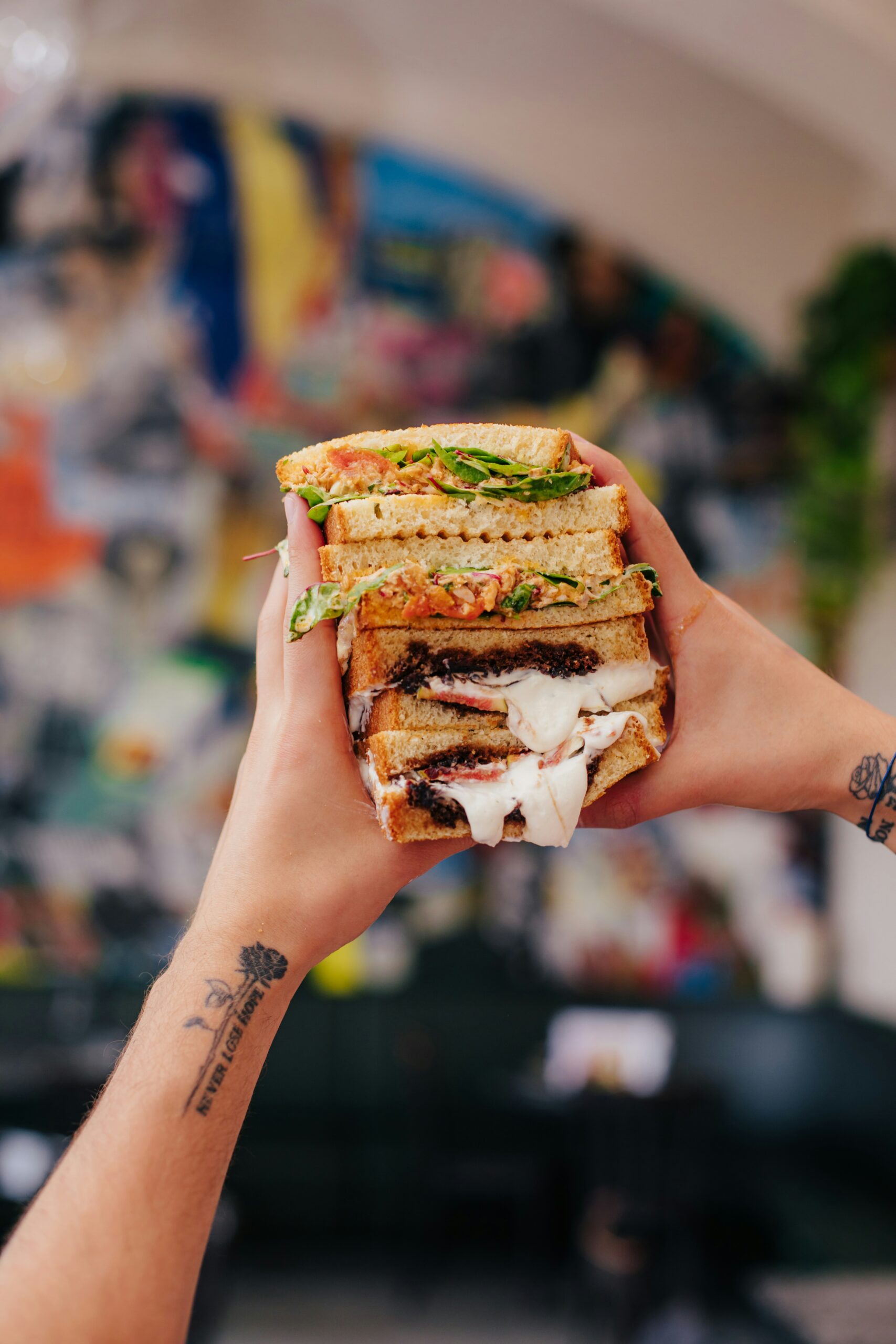Got your first coin and not sure what to do? You’ve been broke. Like, skipping haircuts for months and DIY-ing your own trims broke. The kind of broke where you’ve had to tell your friends, “I’m just swamped with stuff,” when they invite you out, but really, you couldn’t even afford a coffee.
You remember eyeing that vintage vinyl you’ve been hunting down for months, only to realize you couldn’t swing it—not when you’re still crashing at your parents’ place and desperately need to save up enough to finally move out.
But now, finally, after months of relentless job hunting, endless anxiety, and countless nights wondering if your LinkedIn profile was just floating in some digital void, you’ve got a job. It wasn’t even one of those shiny, full-time offers you’d been chasing down like a lifeline.
No, it was a side hustle you’d barely put any stock in—something you picked up almost out of desperation, because, honestly, what did you have to lose?
You’d been tinkering with this gig on the side, pushing it here and there, telling yourself, “Maybe this will turn into something.” But deep down, you weren’t holding your breath. It was just a way to keep yourself busy, to keep some kind of income stream trickling in while you sent out resume after resume into the LinkedIn abyss.
And then, out of nowhere, it started to pay off. Clients came in, orders piled up, and before you knew it, what started as a “let’s see where this goes” side hustle became a full-fledged gig. The kind that actually puts money in your bank account. Real money. The kind that you can rely on.
The relief is almost overwhelming. You wake up in the morning now knowing that steady income is yours—not some fleeting, here-today-gone-tomorrow deal, but an actual, consistent paycheck.
It’s a chance to get out of the red, to stop worrying about overdraft fees or whether you can afford that bottle of shampoo you’ve been rationing for weeks. And maybe, just maybe, it’s a chance to start living a little, to finally take a breath and think about what you really want to do with this newfound financial freedom.
So here you are, staring at your bank account with that first real paycheck sitting pretty, and all you can think is: What now? The temptation to blow it all on something fun, something you’ve denied yourself for so long, is real. But you’ve been broke before, and you know how quickly things can spiral out of control.
Should you splurge on that high-end hair serum you’ve been dreaming about, or maybe even treat yourself to a full-on hair makeover? After all, you’ve been rocking the DIY look for way too long. Or should you finally buy that vintage vinyl you’ve had your eye on? It’s calling your name, and you’ve been imagining how good it would feel to actually own it. But then the practical side of you kicks in: Should you save it all or at least set some aside for emergencies? You know, like in case that side hustle hits a rough patch.
How much should you be saving versus spending? You don’t want to be too stingy and miss out on enjoying the moment, but you also don’t want to find yourself broke and stressed out again. Maybe it’s time to start an emergency fund or even begin saving up for when you can finally move out of your parents’ house. But how much is enough to save before you take that leap? Should you be putting something away for bigger future plans, like finally upgrading your living space or investing in your career?
Should you treat your friends to a night out to celebrate this win, or would that just set you back? After all, you’ve turned them down so many times because you couldn’t afford it. And speaking of treating yourself, should you splurge on that outfit you’ve been eyeing or sign up for that gym membership you’ve been considering? Both feel like they’d boost your confidence, but are they worth it right now?
Then there’s the whole idea of the future. Should you start thinking about saving for a car, or maybe even start a retirement account? The thought of retirement seems so far off, but you’ve heard it’s never too early to start. And what about investing? Should you put a little into stocks or cryptocurrency and see where it goes, or is that too risky?
You need a plan.
You’ve worked too hard to get here, and you want to make sure this money actually makes a difference in your life, not just in the moment, but in the long run. You’re not just trying to survive anymore—you’re ready to start building something better.
First Thing: Pause and Reflect on Your First Coin
Seriously, take a moment. You’ve hustled to get your first coin, so don’t rush into spending it. The first thing you need to do is breathe, sit down with a cup of coffee, and reflect on what you really need right now versus what you want. This step is about getting clear on your priorities.
Next: Handle Immediate Expenses with Your First Coin
If you’ve got any small, lingering debts—like a friend who lent you money or a forgotten bill—use some of your first coin to settle those up. It might seem minor, but clearing these out can provide a sense of relief and keep your financial picture clean.
Even though you don’t have pressing bills right now, start putting money aside for anticipated future expenses.
If your job requires specific gear or attire, like new work clothes, a professional portfolio, or updated tech equipment, prioritize these expenses.
Depending on your job, you might need to cover transportation costs, such as gas for your car, public transit passes, or parking fees. If you’ve been putting off maintaining your car—like an overdue oil change or new tires—use some of your first coin to ensure your vehicle remains reliable and efficient.
If you’ve had any medical expenses that you’ve been putting off, now’s the time to address them. This could include unpaid doctor’s visits and prescriptions.
Over time, it’s easy to forget about recurring subscriptions—streaming services, magazine subscriptions, or even monthly software tools. If you’ve been paying for these while managing a tight budget, review them and cancel any you don’t use regularly. Alternatively, pay the upcoming bills if they’re essential to your routine or if you use them frequently.
Credit card debt often carries high interest rates, so it’s crucial to tackle any outstanding balances. If you’ve accumulated debt while waiting for your job to start, focus on paying off at least the minimum payment, or better yet, aim to pay more if you can. This helps keep your credit score in good shape and reduces the burden of high-interest debt.
If you’ve recently graduated or have been in school, your student loans might be kicking in. These payments can be a big part of your financial responsibilities. Check your loan servicer for the exact amount due and the due date. If you have any outstanding payments or if your loans are about to enter repayment, prioritize setting aside the necessary amount to avoid penalties or late fees.
Then: Start Your Emergency Fund with Your First Coin
Even if you’re still at home, it’s smart to set aside a chunk of your first coin for an emergency fund. Open an account at a different bank—one that’s not connected to your main accounts and doesn’t offer an easy-access card. This makes it a little harder to dip into, helping you truly reserve your first coin for real emergencies.
Even if you’re starting with a small amount, stash it in a savings account and don’t touch it unless something truly unexpected comes up. This fund is your safety net, so you don’t have to panic if life throws a curveball.
Make Use of Cash-Back Apps
If you’re already careful about spending, why not use cash-back apps to give your savings a boost? Apps like Rakuten or Ibotta can earn you cash back on your everyday purchases. Link your cash-back rewards directly to your emergency fund account. It’s a small, but effective way to add to your savings without any extra effort.
Use a Goal-Oriented Savings Account
Dreaming about moving out and hitting other big financial goals? Use a savings account that lets you set up sub-accounts for each goal. Banks like Simple allow you to create specific “Goals” within your account. This way, you can easily track your progress toward moving out and other milestones with your first coin.
Check Out Credit Unions for Better Deals
You’ve spent enough time stressing over every dollar—why not get a bit of a break? Credit unions often offer better rates and more personalized service compared to traditional banks. Check out local credit unions or online options like Alliant or PenFed. They might just offer the financial cushion you need as you transition from scraping by to thriving with your first coin.
Try a “Savings App” That Rounds Up Your Purchases
If you’ve been counting every penny just to make ends meet, let an app help you save. Apps like Acorns or Qapital round up your purchases to the nearest dollar and deposit the change into your savings account. It’s an effortless way to build up your emergency fund without feeling like you’re skimping on essentials. Those little extra bits of your first coin can add up over time.
Join a Savings Challenge
Finding saving a bit slow or daunting? Try a savings challenge like the 52-Week Savings Challenge or Save $5 a Day Challenge. It’s a structured way to build your emergency fund while making it a bit of a game. It’s not magic—just a method to keep you motivated and your savings on track with your first coin.
Set Up a “Lockbox” Savings Account
Have you ever been tempted to snag some cash from your savings for small stuff? Banks with “lockbox” features, like Chime, let you set up rules for when you can withdraw money. If spending your first coin on impulse has been on your mind, these accounts can help you stay focused on your financial goals by making it a bit harder to dip in.
Go with an Online-Only Bank for Better Interest
Remember how you’ve been scraping by with just the basics, dreaming of a day when you’d finally get some financial breathing room? Online-only banks could be your secret weapon. They often offer better interest rates than big, brick-and-mortar banks because they don’t have physical branches. Think Ally or Marcus by Goldman Sachs. Since you won’t have a local branch tempting you to make a quick withdrawal, your first coin can grow quietly in the background.
After That: Take Care of Yourself (But You Know, Wisely)
You’ve earned this coin, so it’s okay to enjoy a little bit of it. Pick something small but meaningful that will make you feel good—like that hair serum or a night out with friends.
Instead of just buying something, why not treat yourself to an experience? Spend your coin on something that not only feels good but also enriches you.
Could be anything from a spontaneous road trip to a nearby city to explore new vibes or even a quirky subscription service that sends you curated surprises every month.
Just keep it within a reasonable limit, so you don’t blow through your funds too quickly.
Next: Build Your Moving-Out Fund
Your big goal is to move out. Start putting money aside specifically for that. Open a separate savings account and funnel a portion of your coin into it with every payday. This fund will help you cover rent, security deposits, and initial living expenses when the time comes.
Then: Invest in Your Hustle
Think about what you need to keep growing in your job. Maybe it’s upgrading your work wardrobe, getting better tools for your side hustle, or taking a course to improve your skills. Investing in yourself now can pay off big time down the road.
Take a portion of your coin and put it towards a career experiment.
Enroll in an unusual workshop, sign up for a weird online course, or even pay for a mentor session with someone in a totally different industry. The goal here is to stretch your skills in unexpected ways, which could lead to opportunities you never even considered.
Next Step: Start Saving for Big Goals
Beyond moving out, what’s on the horizon? Whether it’s for a car, your own place, or even just a bigger emergency fund, start setting aside money for those big-ticket items. This is where you start building up that financial cushion you’ve been dreaming of.
After That: Consider Investing
Once you’ve got your savings in place, look into investing a portion of your coin.
This could be stocks, bonds, or even dipping a toe into cryptocurrency.
Or instead of just exploring traditional investments, create a “Passion Portfolio.” Invest in things that you understand and that align with your passions—whether it’s buying shares in a company you believe in, funding a friend’s startup, or even purchasing an art piece you think will appreciate in value.
The idea is to invest in things that not only have potential monetary returns but also resonate with your personal interests and values.Just make sure you do your research and don’t invest more than you’re willing to lose.
And Finally: Keep Checking In
Every month or so, revisit your plan. Check your accounts, see how you’re doing with your savings goals, and make adjustments as needed.
Every few months, schedule a “Check-In Day” where you not only review your financial plan but also evaluate your life progress. On these days, take yourself somewhere inspiring—a park, a museum, a café—and reflect on how your money and life goals are aligning.
Staying on top of your finances is the key to making sure your coin keeps growing and working for you.




